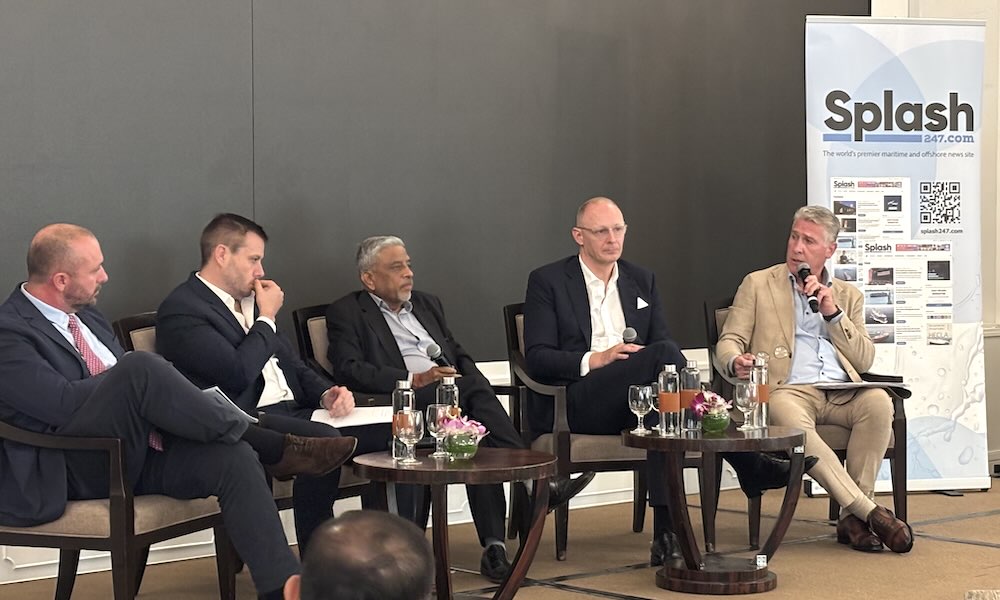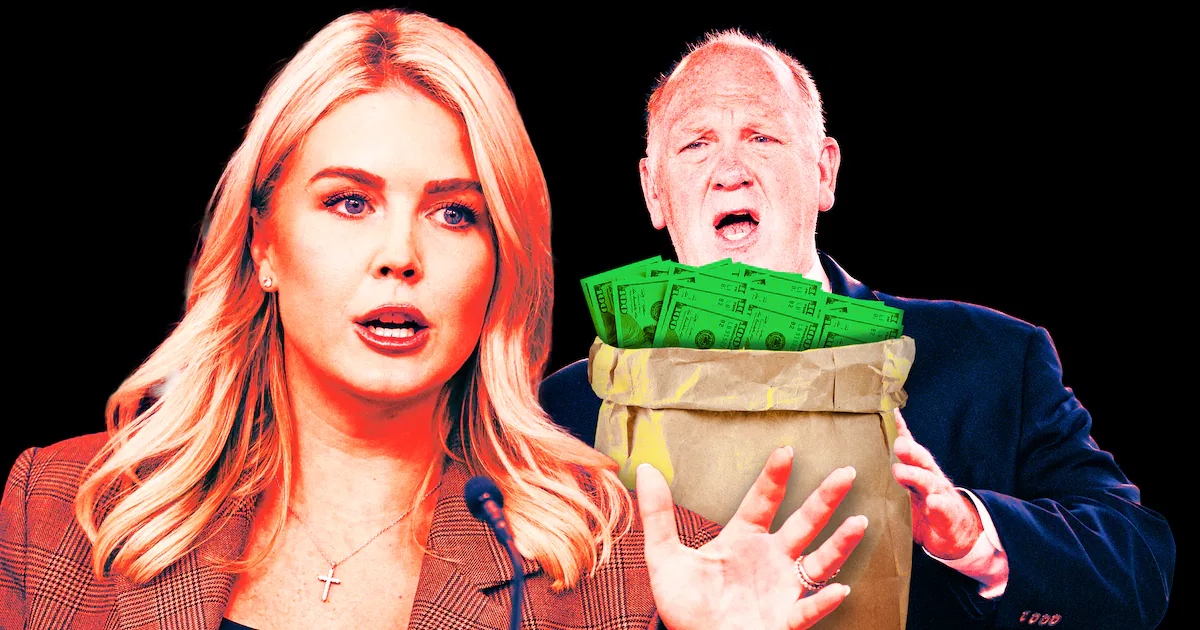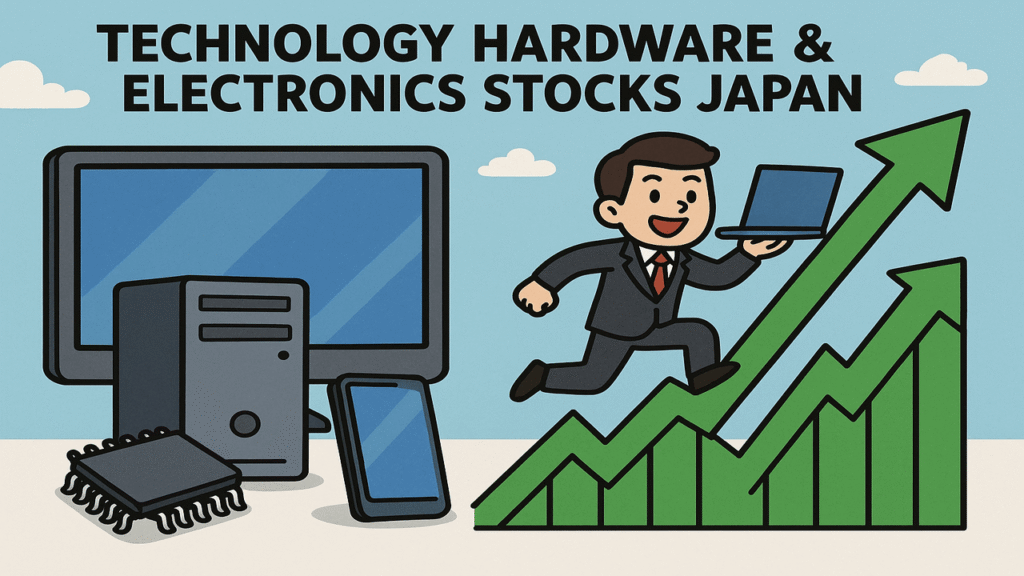By Sam Chambers
Copyright splash247

Singapore’s Fullerton Hotel played host to another lively Maritime CEO Forum last week, with the tanker session proving one of the most animated. Moderated by Duncan Ross of Paratus & Partners, the panel featured Hafnia’s Peter Kolding, Ardmore Shipping’s Mark Cameron, OM Maritime’s Subhangshu Dutt, and Foreguard Shipping’s Alan Hatton. Together, they offered a candid assessment of tanker markets, laced with optimism but grounded in caution.
Dutt pointed to regional flows, stressing the impact of disrupted Red Sea passages and surging biofuel-linked palm oil demand. “Even if peace breaks out tomorrow, confidence to transit the Red Sea will take time to return,” he argued, adding that Asian routes were benefitting from shifting edible oil trades.
Cameron urged perspective: “We forget that $20,000 a day is a good rate. We shouldn’t get carried away.” With debt under control across much of the listed sector, he noted that operators were better positioned than a decade ago. Hatton echoed the point: “Earnings are up 25% on 10-year averages, newbuild prices 30%, secondhand 35%. It makes capital allocation difficult—but this cycle feels structurally different because leverage is lower.”
The discussion turned to ageing fleets. Kolding observed that “what was 15 years 10 years ago is now 17.5 to 18,” as well-maintained tonnage still found acceptance. Cameron bristled at arbitrary cut-offs: “It’s completely fictitious to say a 15-year-old ship can’t be tier one. Standards today are different.” Dutt agreed smaller, well-maintained units still enjoyed trading flexibility.
Technology proved a lively subject. Cameron admitted his bias as an engineer: “I love tech, but I rely on independent, unbiased advice to know what’s worth it.” He argued adoption was faster thanks to owner collaboration, while warning against vendors “peddling ludicrous numbers.” Hafnia’s Kolding stressed realism: “Let’s just go with what works. No overnight transformations.”Perhaps most strikingly, Cameron highlighted incentives for crews as the biggest tech enabler. “We fly 85% of our captains and chief engineers home business class. That incentive alone has probably saved us more fuel than most gadgets,” he quipped.
Carbon costs and biofuels loomed large. Kolding said Hafnia sought to pass costs through contracts: “Ultimately customers will pay, directly or indirectly.” While biofuels were one route, he stressed flexibility in sourcing allowances or offsets could often be cheaper and simpler.
The panel split on terminology when it came to the shadow fleet. Cameron rejected “dark fleet” as too soft: “This isn’t parallel. It’s opposite. These are people putting crews through the Red Sea for greed. That isn’t competition, that’s recklessness.” Kolding was more sanguine, suggesting sanctioned tonnage largely traded in its own ecosystem. Hatton agreed: “Cross the Rubicon into that fleet and you probably don’t come back.”
With Donald Trump’s name barely uttered all morning, Ross eventually raised the prospect of US energy exports booming under a second Trump presidency. Kolding shrugged: “Disruption is inconvenient, but often positive for shipowners.” Cameron meanwhile suggested China’s more centralised policies might give it an advantage in decarbonisation, contrasting with what he called the “messiness” of democratic systems.
Asked to distil the biggest risks and opportunities, all panellists returned to sanctions. “The biggest commercial risk is getting tied up in some trade with a hidden sanctioned counterparty,” Cameron said. Kolding noted more than 400 tankers in “grey trades” are not yet formally sanctioned. “If the US joins in, that’s a massive supply squeeze,” he told delegates.
On opportunities, Hatton pointed to reinvesting profits to clean up the industry: “We’ve been victims of our own success. But now we can fund real efficiency improvements.” Dutt took a more pragmatic line: “Markets are firm. Make hay while the sun shines, keep older ships in good condition, and ride the cycle.”
Cameron closed on governance and diversity: “It’s not soft stuff. Gender balance and transparency drive performance.”
The tanker panel revealed a sector both emboldened by current earnings and wary of the shifting sands of geopolitics, regulation, and energy transition. For now, the consensus seemed clear: discipline and durability would matter more than chasing speculative growth. As Hatton put it: “We’re in a wait-and-see market. The smart move is knowing when not to move.”
Splash will be bringing readers highlights from the AI, digitalisation, and the maritime workforce session tomorrow.



